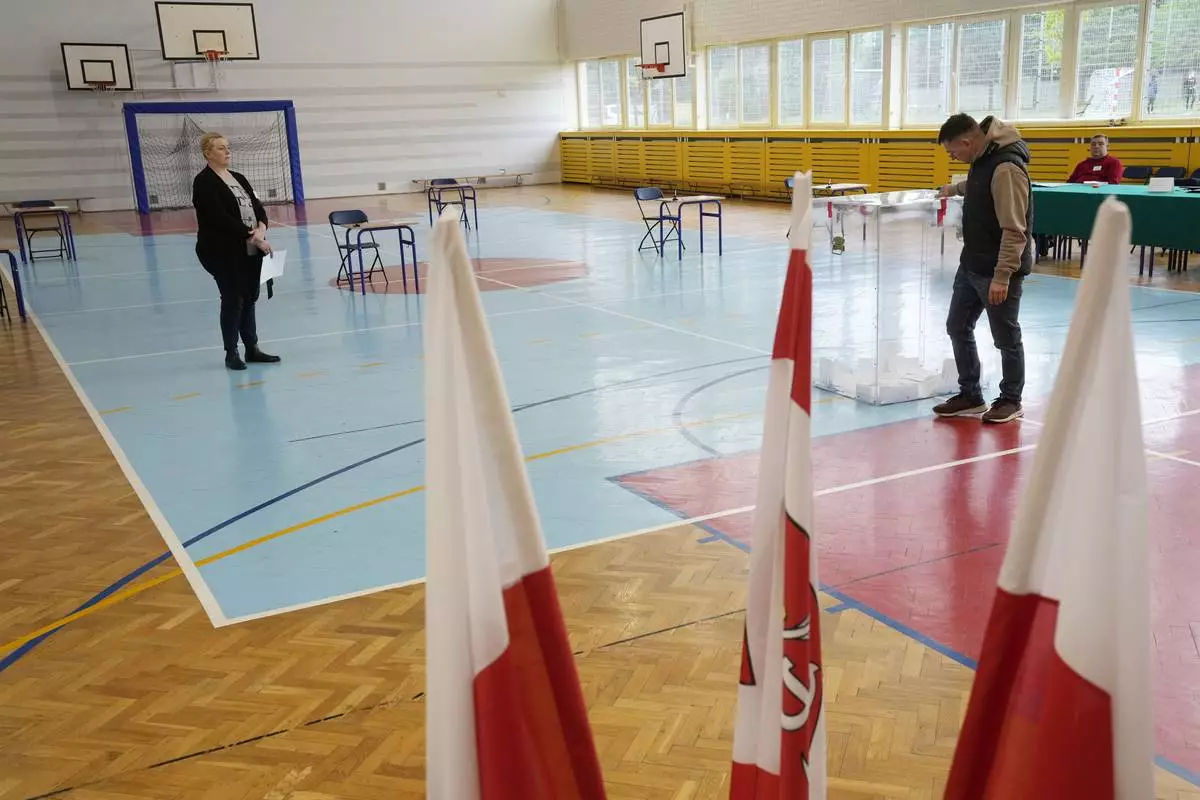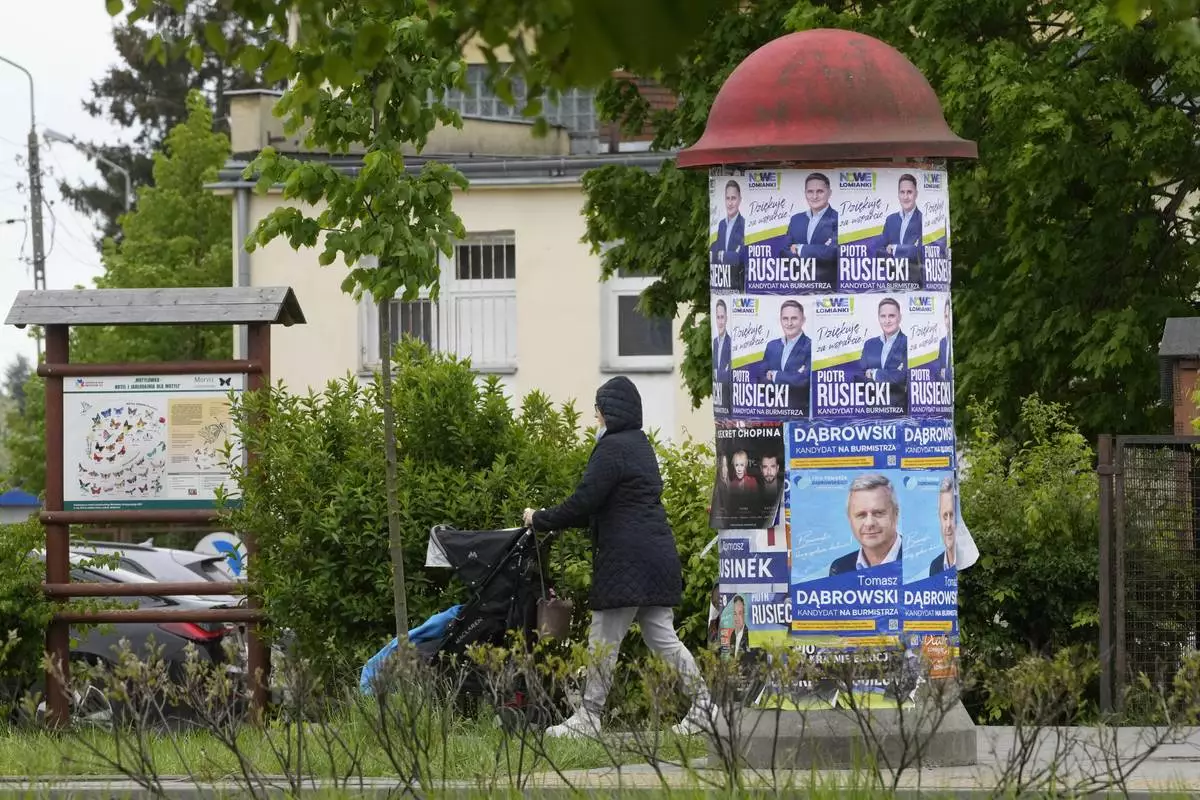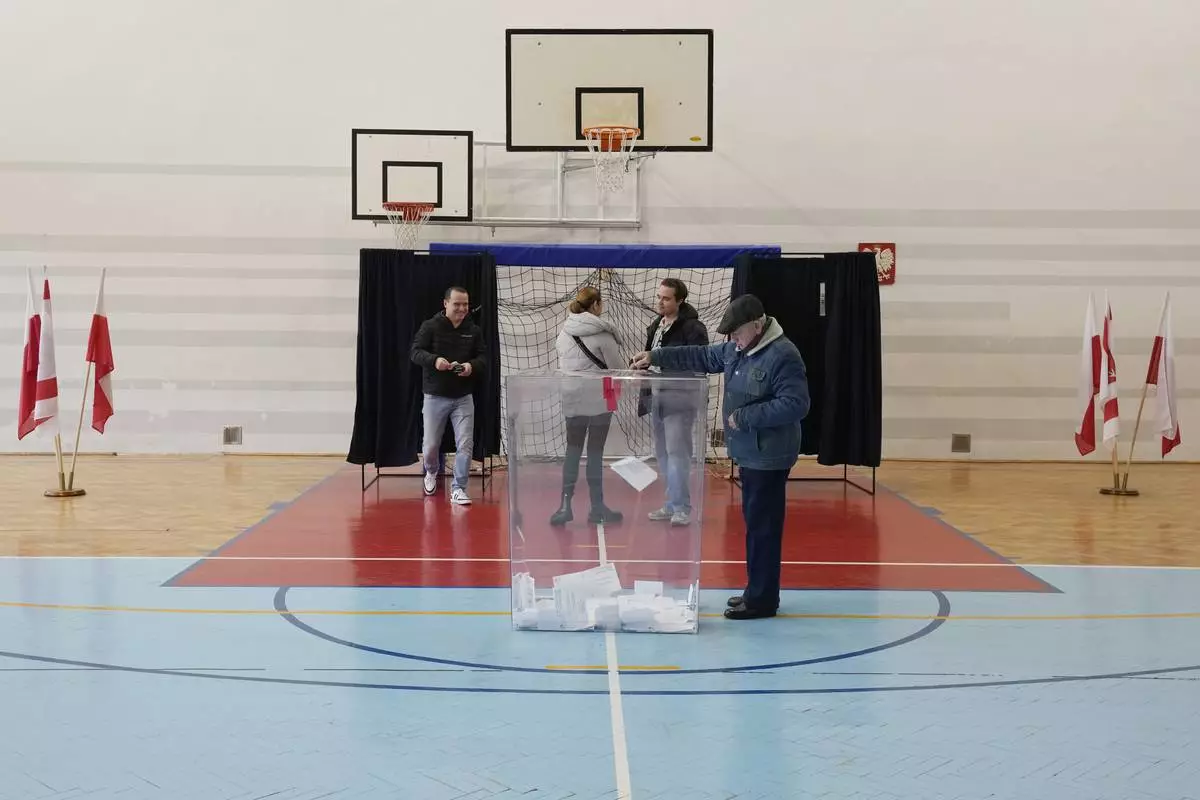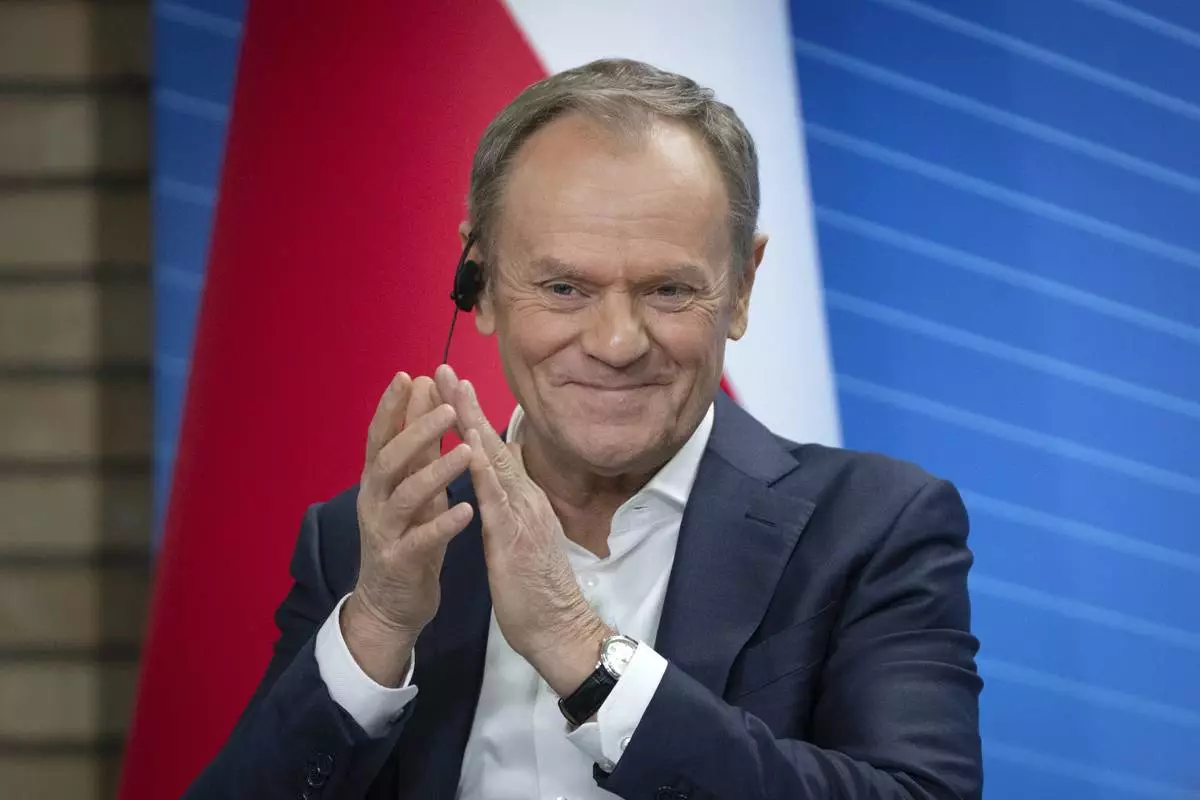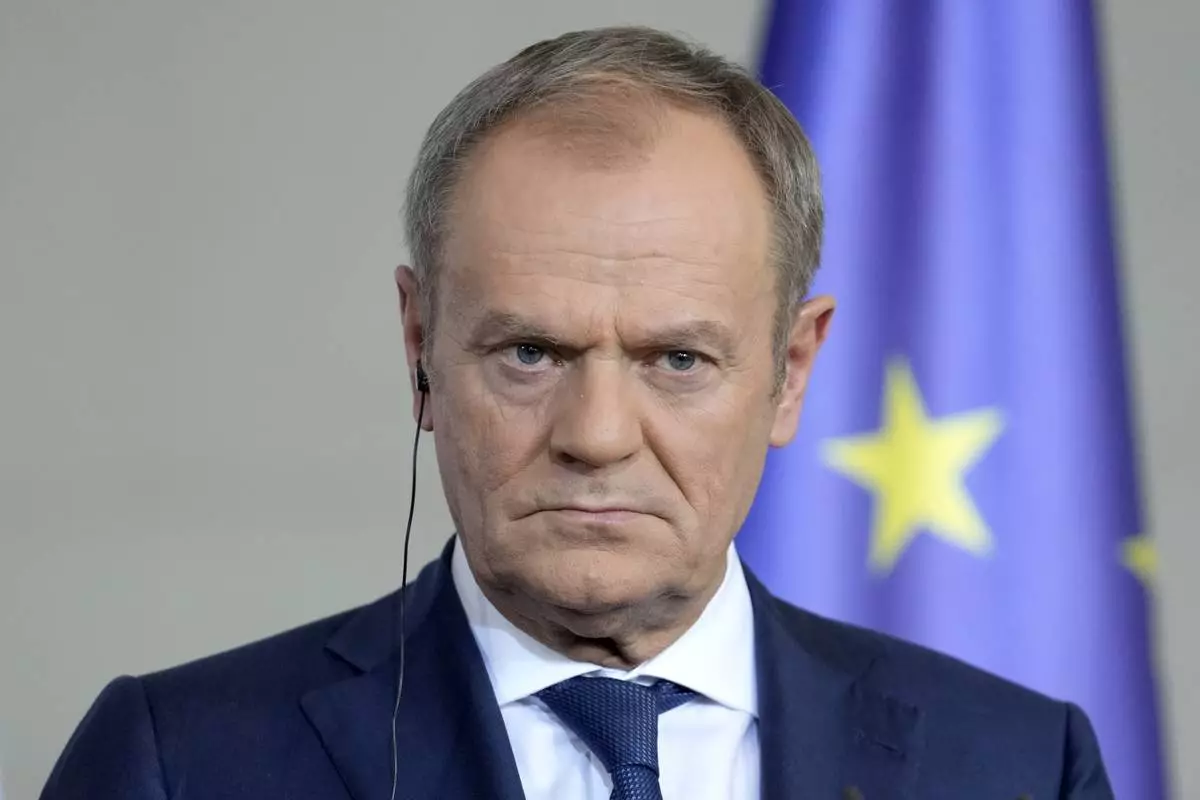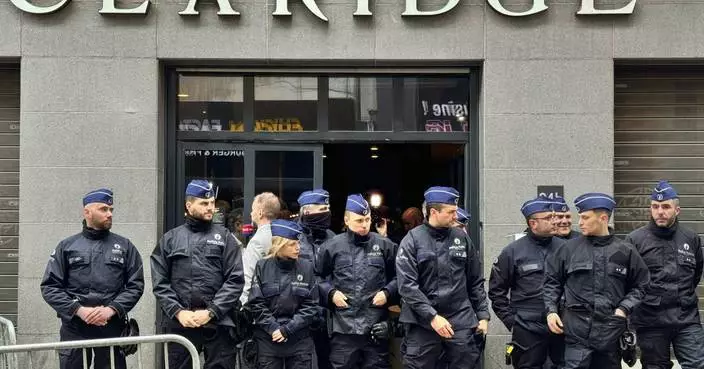Britain and the European Union have a Brexit deal — and if it is ratified, people and businesses will finally have a measure of certainty about what lies ahead.
That's a big if. This is not the first time the two sides have proclaimed an agreement — only for it to be shot down by lawmakers in London. Former Prime Minister Theresa May struck a deal with the EU in December 2018, but Parliament rejected it three times.
Here's a look at what is in the new agreement, and how it differs from May's rejected deal.
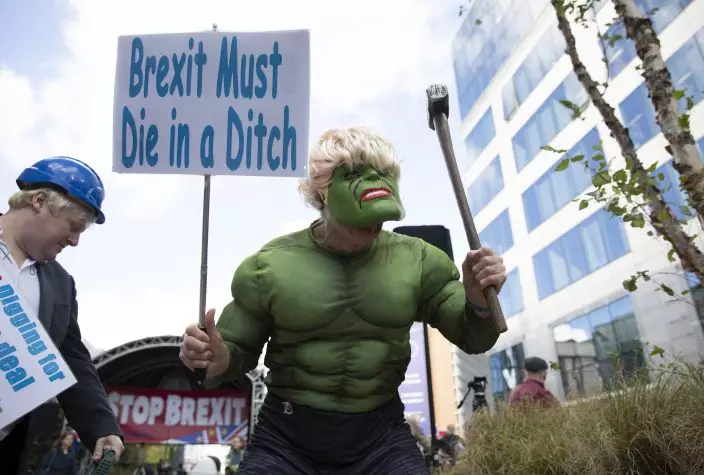
A protestor is dressed in an Incredible Hulk costume as he participates in an anti-Brexit demonstration outside of an EU summit in Brussels, Thursday, Oct. 17, 2019. The European Union says Brexit negotiations are plowing on after intense talks in recent days, as EU leaders converge on Brussels for a key summit aimed at sealing a new divorce agreement. (AP PhotoVirginia Mayo)
IRISH BORDER
Ever since negotiations began more than two years ago, the key hurdle to a deal has been finding a way to keep goods and people flowing freely across the border between EU member Ireland and the U.K.'s Northern Ireland — the only land border between the U.K. and the bloc. An open border is vital to the regional economy, and underpins Northern Ireland's peace process .
May's rejected deal contained a policy known as the backstop that kept Northern Ireland in harmony with EU trade and customs rules to eliminate the need for border checks. But that was opposed by Brexit-supporting British lawmakers, who said it would hamper Britain's ability to strike new trade deals around the world.
British Prime Minister Boris Johnson has insisted that all of the U.K. — including Northern Ireland — must leave the bloc's customs union, which would seem to make border checks and tariffs inevitable.
The proposed deal solves the problem by keeping Northern Ireland aligned with the rules of the EU single market for goods — so border checks are not needed — and also eliminating customs checks at the Irish border. Instead, customs checks will be carried out and tariffs levied by Britain on goods entering Northern Ireland that are destined for the EU.
That effectively means a customs border in the Irish Sea — something the British government long said it would not allow.
But the EU has compromised, too, by allowing Northern Ireland special access to its single market. And the deal gives Northern Ireland a say over the rules, something that was missing from May's previous rejected agreement. After four years, the Northern Ireland Assembly will vote on whether to continue the arrangement or end it.
Apart from the section on Northern Ireland, the deal is largely the same as May's rejected withdrawal agreement. It lays out the terms of Britain's departure, including:
TRANSITION PERIOD: If the deal is ratified, Britain will leave the EU on Oct. 31 but remain inside the bloc's single market and bound by its rules until the end of December 2020, while the two sides work out a new trade relationship.
DIVORCE BILL: Britain agrees to cover contributions to staff pensions and commitments to EU programs the U.K. made while a member for the funding period that runs to 2020. The bill has previously been estimated at about 39 billion pounds ($50 billion).
CITIZENS' RIGHTS: EU citizens now living in Britain, and Britons living or working in EU countries, won't lose their rights to live and work in those areas.
TRADE: In a non-binding political declaration that accompanies the withdrawal agreement, the two sides promise "an ambitious, broad, deep and flexible partnership across trade and economic cooperation with a comprehensive and balanced Free Trade Agreement at its core."
Details of that trade deal, and many other aspects of the future relationship, will only be settled once the U.K. has left.
EU leaders worry that Johnson's Conservative government plans to tack toward a low-tax, low-regulation economy after it leaves the bloc. To lessen this worry — and in a concession by the U.K. government — the declaration commits both sides to maintaining a "level playing field," with "common high standards . in the areas of state aid, competition, social and employment."
SECURITY: The two sides say they will have a "broad, comprehensive and balanced security partnership" but say the "scale and scope" of the relationship will depend on how close the future relationship is.
TRAVEL: EU citizens will lose the right to live and work in Britain — and vice versa — but citizens of the U.K. and the EU will not need visas for short visits.
Follow AP's full coverage of Brexit and British politics at https://www.apnews.com/Brexit



